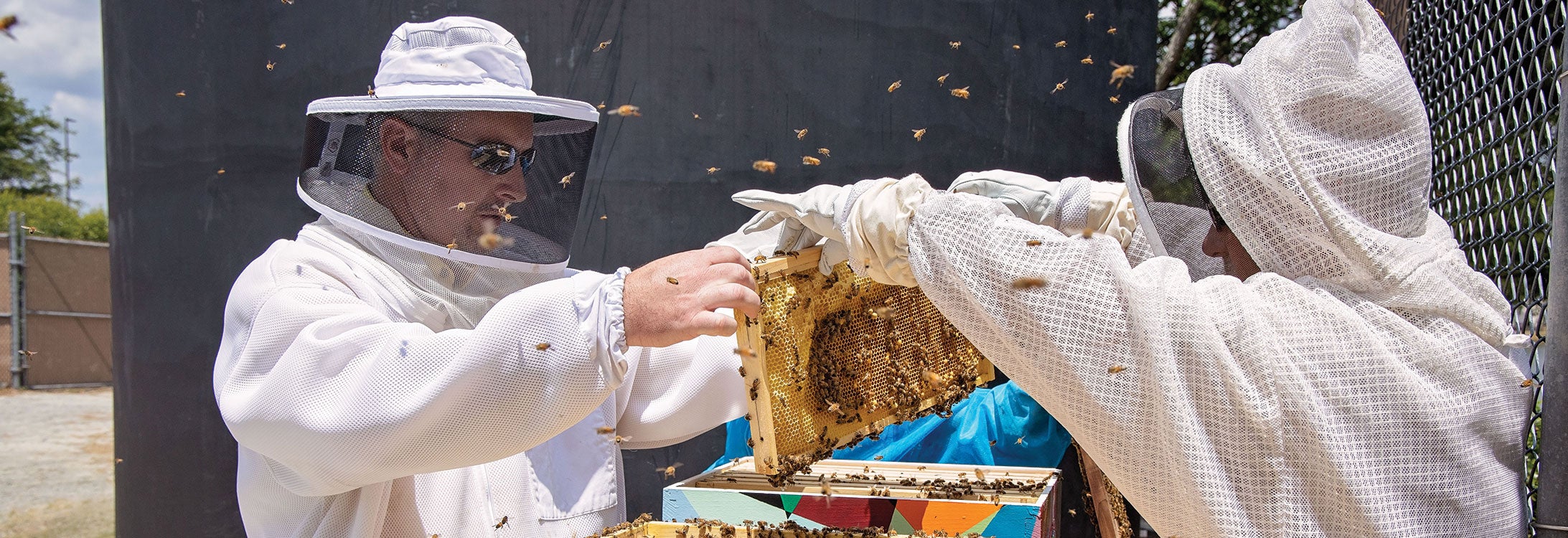New hives, habitat become home for ECU bees
ECU’s Health Sciences Campus has about 20,000 new residents following the installation this spring of two hives of western honeybees near the lake.
Chad Carwein, ECU sustainability manager, said the project is part of the university’s response to the global issue of declining bee colonies.
“Colony collapse disorder has killed about 50% of bee colonies worldwide in the last 10 years, and we’re trying to establish these hives because, when it gets down to it, one out of every three bites of food is pollinated by a bee,” he said.
On May 20, Will Johnson of All American Bee Company in New Bern transported the bees to campus and, with the help of Karen Mulcahy, teaching associate professor of geography, and retired ECU staff member Dale Aycock, transferred them to the new hives. After the queen is moved, the rest of the bees follow, Johnson said.
“Right now, they are flying around and orienting themselves,” Mulcahy said. “Eventually they will fly up to 1 to 2 miles in search of pollen and water.”
In addition to the hives, grounds crews have installed native plant species favorable for bees and other pollinators. Largely as a result of those efforts, in July, ECU was certified as an affiliate of the Bee Campus USA program. ECU joins more than 150 other cities and campuses across the country united in improving their landscapes for pollinators.
“This project will continue to evolve,” Carwein said. “This is just our first installation of hives. We’re looking at potential locations on both campuses to put in more hives in the future.”
